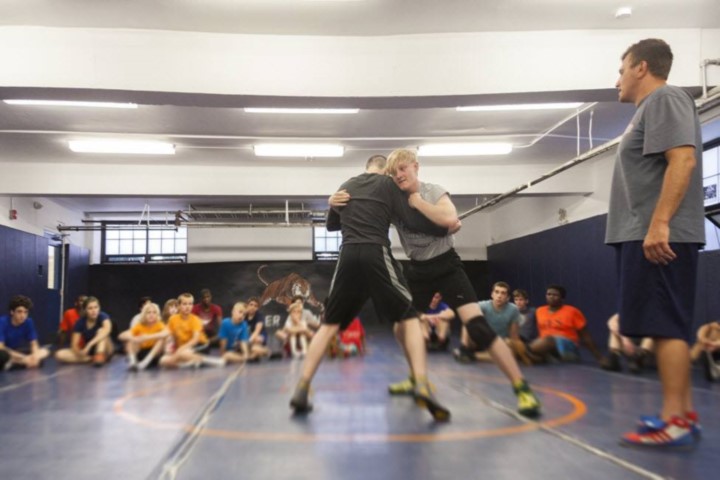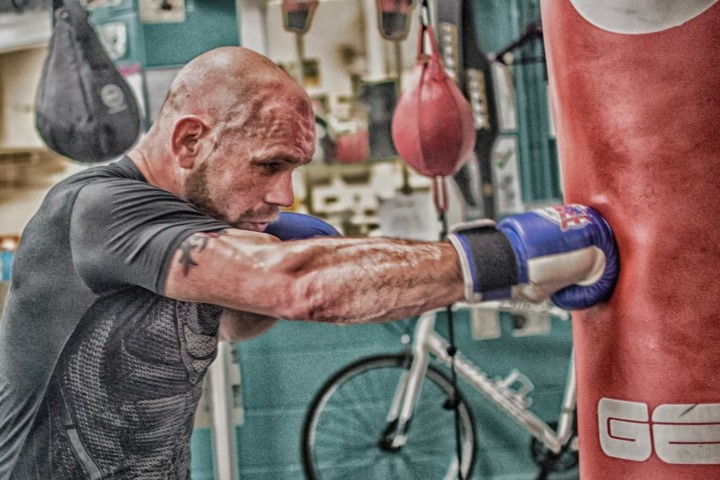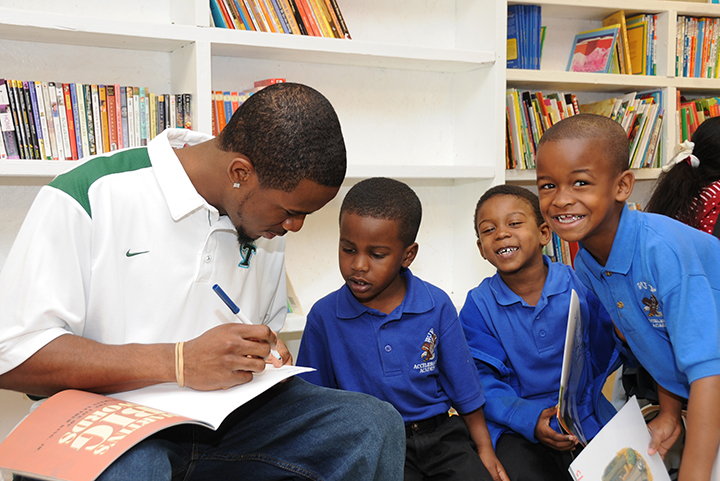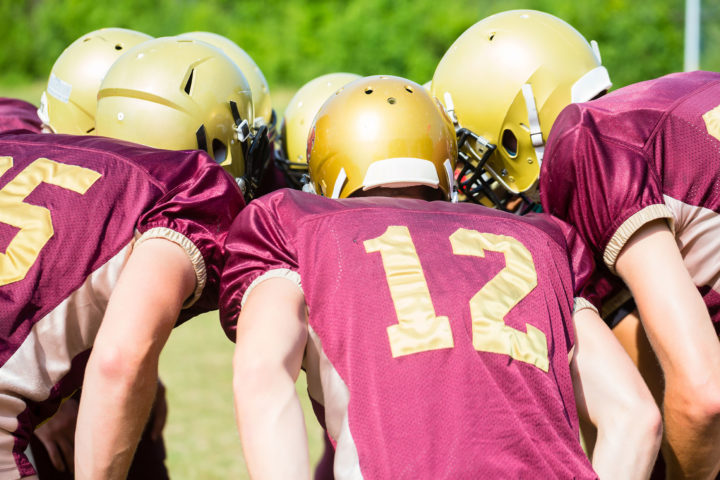Students at a private Philadelphia school are taking part in an annual wrestling camp that’s designed to help them perfect their character as much as their wrestling techniques.
According to Chestnut Hill Local:
In the basement of Smith Gym, an historic building with character that may remind some of underground gyms in the Rocky movies, campers learn new wrestling moves from their coach and guest athletes from all over the world. In its ninth year, this coed camp not only allows kids to master wrestling techniques and new moves, but also encourages values of integrity, respect, and hard work through fitness and friendship.
Wrestling camp director Paul Hammond told the news site the sport taught him dedication and focus, and he hopes to impart those virtues to students. He explained how wrestling can teach kids about patience and time-management, working as a team, treating opponents with fairness and kindness, and respecting their peers as well as themselves.
“I love that kids can let their summer energy out in a safe space, test and push themselves, and have a lot of fun,” he said.
Campers also learned life lessons and wrestling tips from top wrestlers, including Olympic wrestler Kazem Gholami, a Division 1 American University grappler turned Mixed Martial Artist Nick Kilstein, and others from local universities.
Gholami, who has used his platform to speak out against Iran’s social injustices, discussed single-leg takedowns, how to create angles, and timing, while also stressing how hard work and dedication in wrestling can transfer to other aspects of students’ lives, the news site reports.
“Our wrestling camp is a unique, active experience for kids to sharpen their competitive edge, practice focus and drive, and make friends,” German Friends School athletic director Katie Bergstrom Mark said.
“It was the first of its kind in the city and the program has grown immensely over the past nine years, offering campers access to former world and national caliber coaches and athletes, in addition to wrestlers from local universities,” she said. “I am thrilled to see Coach Hammond put his own unique twist on the program and make this physically and mentally challenging sport a ton of fun.”
The wrestling camp is an example of the type of specific culture officials are cultivating in the German Friends School – a culture that ultimately shapes how students live their lives.
James Davison Hunter, founder of the Institute for Advanced Studies in Culture at the University of Virginia, explains the following on character formation in “The Death of Character.”
“Spartan and Athenian cultures prescribed different content for character, not least because they had different ideas of the common good,” Hunter wrote. “In other words, moral cultures and the communities in which they are established provide the reasons, restraints, and incentives for conducting life in one way rather than another.”
The Positive Coaching Alliance offers resources for educators, parents, coaches and school officials to help create “better athletes, better people” through sports.
“In addition to 1,500+ free audio-video and printable tips and tools at www.PCADevZone.org, PCA has partnered with roughly 3,500 schools and youth sports organizations nationwide to deliver live group workshops, online courses and books by PCA Founder Jim Thompson that help those involved in youth and high school sports create a positive, character-building youth sports culture,” according to the PCA website.






